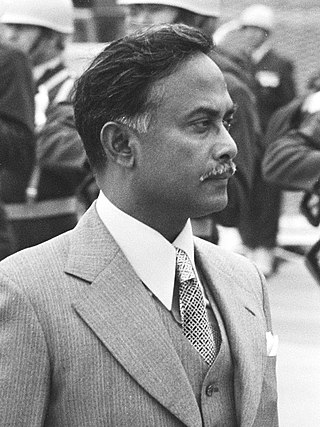
Ziaur Rahman was a Bangladeshi military officer and politician who served as the President of Bangladesh from 1977 until his assassination. He was the founder of the Bangladesh Nationalist Party (BNP) and served as its chairman until his assassination. He previously served as the second chief of army staff from 1975 to 1978 with a minor break.
Abu Taher was a Bengali military serviceman, who served in the Pakistan Army, and later in BDF. He crossed into India around early August and reported to the Indian authorities. After a week screening at Dehradun, India, Taher reported to Kolkata, Bangladesh Provincial government at 8 Theatre Rd. He was ordered to report to Sector 11 of Mukti Bahini under command of Major Ziaur Rahman, he became the sector commander after him. He served in BDF from end of August to 2 November 1971. He was awarded the medal Bir Uttom for his gallantry in the liberation war. He was released from military service by Indian military medical board in Pune, India after his leg was amputated. After independence, he was inducted into the Bangladesh Army for administrative retirement with legacy rank of lieutenant colonel. After settling in with family, the government of Bangladesh appointed him with employment at Kumilla. Later Taher turned into a political activist and leader of the left-wing Jatiyo Samajtantrik Dal.
Khaled Mosharraf, Bir Uttom was a Bangladeshi army officer who is known for his role in the Bangladesh Liberation War and the subsequent coups in post-independence Bangladesh. After deposing Khondakar Mustaq Ahmad in the 3 November 1975 coup, Mosharraf was assassinated on 7 November 1975.

Bangladesh has undergone several changes of government since its independence. Between the first recorded uprising in August 1975 and the last known attempt in December 2011, Bangladesh has been through as many as 29 military Coups.
Syed Faruque Rahman was a coup member involved in toppling the Sheikh Mujib regime in Bangladesh. He was convicted and hanged on 28 January 2010 along with co-conspirators Sultan Shahriar Rashid Khan, A.K.M. Mohiuddin Ahmed, Mohiuddin Ahmed, and Mohammad Bazlul Huda in Dhaka Central Jail, Old Dhaka, for the murder of Sheikh Mujibur Rahman, the founder and first President of Bangladesh. Syed Faruque Rahman and his close ally Khondaker Abdur Rashid were the chief organisers of the assassination of Sheikh Mujibur Rahman on 15 August 1975. He was 2IC of the 1st Bengal Lancers Regiment of the Bangladesh Army who led a group of junior army officers in-order to overthrew the regime of Sheikh Mujibur Rahman and installed Khondaker Mushtaque Ahmed as President of Bangladesh.

Ziaur Rahman, the sixth president of Bangladesh, was assassinated by a faction of officers of Bangladesh Army, on 30 May 1981, in the south-eastern port city of Chittagong. Rahman went to Chittagong to arbitrate in a clash between the local leaders of his political party, the Bangladesh Nationalist Party. On the night of 30 May, a group of officers commandeered the Chittagong Circuit House, a government residence where Rahman was staying, shooting him and several others.
Muhammed Abul ManzurBU was a Bangladeshi military officer who commanded the Bangladesh Forces operations in Sector 8 during the Bangladesh Liberation War against Pakistan in 1971. He was allegedly involved in the assassination of the then-President of Bangladesh, Ziaur Rahman. The erstwhile Chief of Army Staff and alleged mastermind of Rahman's assassination, Hussein Muhammad Ershad, had put a standing shoot-to-kill order on Manzur's life—he was killed shortly after being captured at the border. About a year later, Ershad initiated a bloodless coup d'état and took over the Central Government, holding power until 1990.

The Jatiya Rakkhi Bahini was a Bangladeshi para-military force formed in 1972 by the Sheikh Mujibur Rahman government.
Z Force, also known as Tura Brigade, was the first military brigade of Bangladesh Forces formed during the Liberation War of Bangladesh in 1971 under Major Ziaur Rahman along with the consent of the revolutionary government of Bangladesh in exile. The brigade was formed with the 1st, 3rd and 8th Battalion of East Bengal Regiment on 7 July 1971. It is the first ever complete brigade formed during the Liberation War of Bangladesh in 1971.
S Force was a military brigade of the Bangladesh Armed Forces that was formed under the leadership of Major K M Shafiullah on October 1, 1971. The brigade was composed of the 2nd and 11th East Bengal Regiments.
1972–1975 Bangladesh insurgency refers to the period after the independence of Bangladesh when left-wing Communist insurgents, particularly the Gonobahini fought against the government of the Prime Minister Sheikh Mujibur Rahman.
The 7 November 1975 Bangladesh coup d'état was a coup d'état launched by left-wing army personnel in collaboration with left-wing politicians from Jatiya Samajtantrik Dal. The coup resulted in the death of Major General Khaled Mosharraf, who only 3 days prior, led a coup against those involved in the assassination of Sheikh Mujibur Rahman. During the coup, Ziaur Rahman was freed from house arrest, enabling him to seize power and become president.
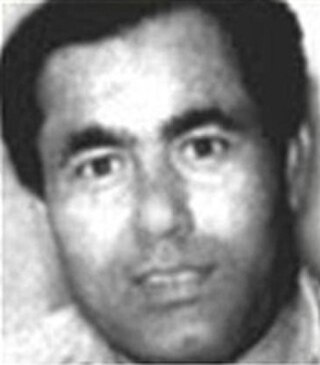
MoslemuddinKhan, also known as Rafiqul Islam Khan, is a Bangladeshi army officer who was convicted for his role in the 15 August 1975 Bangladeshi coup and the subsequent jail killings. He was sentenced to death in absentia and is currently a fugitive.
The Biplobi Shainik Sangstha was a clandestine socialist group within the Bangladesh Army, which was active from 1973 to 1975. The BSS was formed by the left-wing party Jatiya Samajtantrik Dal (JSD) and led by Major (dismissed) M.A. Jalil and Lt. Colonel (retired) Abu Taher. The BSS is known for organising the 7 November 1975 coup which enabled Ziaur Rahman to become president.
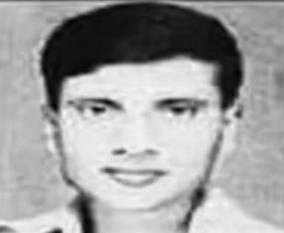
Abu Yousuf Mohammad Mahfuzur Rahman, also known as A.Y.M. Mahfuzur Rahman, was a Bangladeshi army officer who served as a sub-sector commander during the Bangladesh Liberation War. In 1981, he was executed for his alleged involvement in the assassination of president Ziaur Rahman.
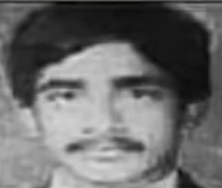
Rafiqul Hassan Khan was a Bangladeshi army officer who was executed for this alleged involvement in the assassination of president Ziaur Rahman.
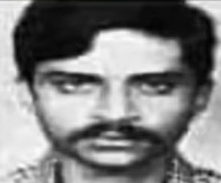
Jamil Haque was a Captain in the Bangladesh Army who was executed for his involvement in the assassination of president Ziaur Rahman.

Mujibur Rahman was a Bangladeshi army officer who was executed for his alleged role in the assassination of president Ziaur Rahman.

Beginning on 9 October 1977, the government of Ziaur Rahman carried out mass executions of military personnel, following a series of attempted coups in Bangladesh. According to official records, 1143 members of the Bangladesh armed forces were hanged in two months, following 9 October 1977. This was the first mass execution of military personnel on this scale in South Asia.
Matiur Rahman, also known as Motiur Rahman, was a Lieutenant Colonel in the Bangladesh Army who was involved in the assassination of President Ziaur Rahman on 30 May 1981. He is believed to be the one to have shot and killed President Ziaur Rahman. Matiur was subsequently killed in a shootout with troops loyal to the government on 1 June 1981.










